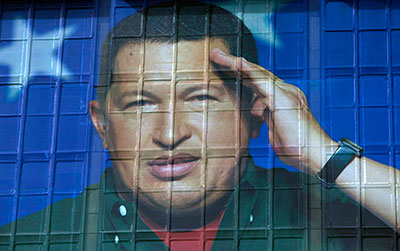Violence and legal harassment: the two greatest obstacles to press freedom in Latin America today. That’s the message that CPJ Executive Director Joel Simon is delivering this morning in Washington, D.C., at a briefing hosted by Congressman Sam Farr. Farr, a California Democrat, hosts a monthly series looking at emerging trends in the Western Hemisphere. The panel today also includes Commissioner Dinah Shelton of the Inter-American Commission on Human Rights and Delphine Halgand of Reporters Without Borders.
Simon will discuss violence against journalists in Mexico and Honduras, as well as “the series of judicial and legislative restrictions being placed on the press by democratically elected governments that wish to control the flow of information and stifle dissent.” This is the case in Venezuela and particularly Ecuador, where President Rafael Correa has used criminal defamation laws to punish and intimidate critical journalists. Furthermore, Correa and Venezuela President Hugo Chávez have extended their assault on the press to one of the region’s most prestigious bodies: the Inter-American Commission on Human Rights and its Special Rapporteur on Freedom of Expression. A full text of Simon’s prepared remarks can be read here.
